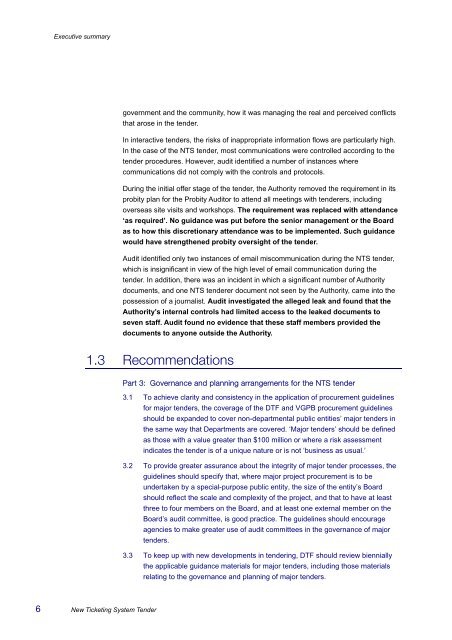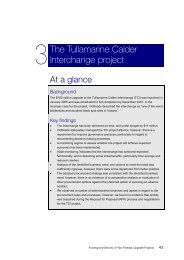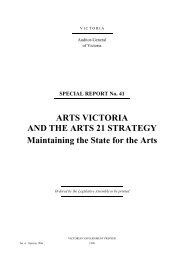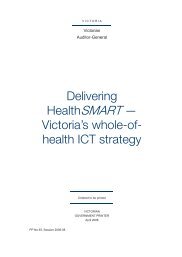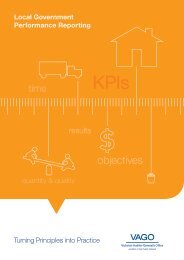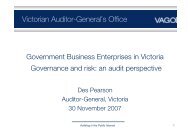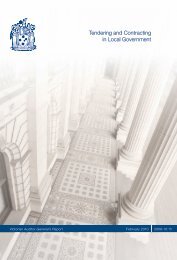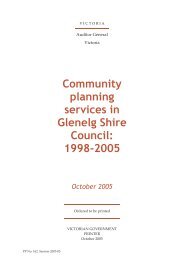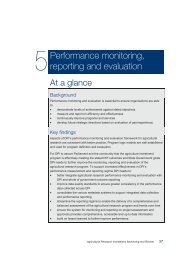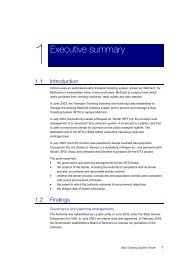New ticketing system tender
New ticketing system tender
New ticketing system tender
You also want an ePaper? Increase the reach of your titles
YUMPU automatically turns print PDFs into web optimized ePapers that Google loves.
Executive summary<br />
6 <strong>New</strong> Ticketing System Tender<br />
government and the community, how it was managing the real and perceived conflicts<br />
that arose in the <strong>tender</strong>.<br />
In interactive <strong>tender</strong>s, the risks of inappropriate information flows are particularly high.<br />
In the case of the NTS <strong>tender</strong>, most communications were controlled according to the<br />
<strong>tender</strong> procedures. However, audit identified a number of instances where<br />
communications did not comply with the controls and protocols.<br />
During the initial offer stage of the <strong>tender</strong>, the Authority removed the requirement in its<br />
probity plan for the Probity Auditor to attend all meetings with <strong>tender</strong>ers, including<br />
overseas site visits and workshops. The requirement was replaced with attendance<br />
‘as required’. No guidance was put before the senior management or the Board<br />
as to how this discretionary attendance was to be implemented. Such guidance<br />
would have strengthened probity oversight of the <strong>tender</strong>.<br />
Audit identified only two instances of email miscommunication during the NTS <strong>tender</strong>,<br />
which is insignificant in view of the high level of email communication during the<br />
<strong>tender</strong>. In addition, there was an incident in which a significant number of Authority<br />
documents, and one NTS <strong>tender</strong>er document not seen by the Authority, came into the<br />
possession of a journalist. Audit investigated the alleged leak and found that the<br />
Authority’s internal controls had limited access to the leaked documents to<br />
seven staff. Audit found no evidence that these staff members provided the<br />
documents to anyone outside the Authority.<br />
1.3 Recommendations<br />
Part 3: Governance and planning arrangements for the NTS <strong>tender</strong><br />
3.1 To achieve clarity and consistency in the application of procurement guidelines<br />
for major <strong>tender</strong>s, the coverage of the DTF and VGPB procurement guidelines<br />
should be expanded to cover non-departmental public entities’ major <strong>tender</strong>s in<br />
the same way that Departments are covered. ‘Major <strong>tender</strong>s’ should be defined<br />
as those with a value greater than $100 million or where a risk assessment<br />
indicates the <strong>tender</strong> is of a unique nature or is not ‘business as usual.’<br />
3.2 To provide greater assurance about the integrity of major <strong>tender</strong> processes, the<br />
guidelines should specify that, where major project procurement is to be<br />
undertaken by a special-purpose public entity, the size of the entity’s Board<br />
should reflect the scale and complexity of the project, and that to have at least<br />
three to four members on the Board, and at least one external member on the<br />
Board’s audit committee, is good practice. The guidelines should encourage<br />
agencies to make greater use of audit committees in the governance of major<br />
<strong>tender</strong>s.<br />
3.3 To keep up with new developments in <strong>tender</strong>ing, DTF should review biennially<br />
the applicable guidance materials for major <strong>tender</strong>s, including those materials<br />
relating to the governance and planning of major <strong>tender</strong>s.


